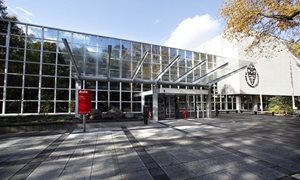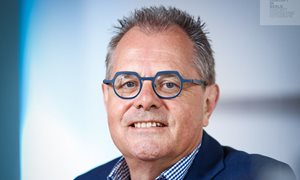
During the lecture Dick gave an overview of the work he has performed in the last 20 years, reflected on the central lessons he learned, and shared the plans for the future.
The central theme of the professorial lecture was, obviously, the role of physical (in)activity in the development of cardiovascular disease. More specifically, he discussed the underlying cardiovascular physiological mechanisms why, how and how fast physical (in)activity is able to affect the cardiovascular system and the risk for developing cardiovascular disease. The general concept related to the repeated exposure to changes in blood flow, which seems an essential stimulus for the heart and blood vessels to adapt. This general concept of repeated exposure to stimuli even seems applicable to learning of new knowledge.
Following the lecture, we enjoyed drinks and a great party with current and previous 'generations' of PhD-students and post-docs of the Department of Physiology.
Photos taken by Theo Hafmans
Related news items

PhD degree for Lisa Wanders
20 December 2022Lisa Wanders obtained her PhD degree at the Faculty of Medical Sciences.
read more
Farewell to Physiology René Bindels
20 December 2022After 41 years at the department of Physiology, René Bindels will retire at the end of this year.
read more
PhD degree for Marlou-Floor Kenkhuis
22 November 2022Marlou-Floor Kenkhuis obtained her PhD degree in the Faculty of Health, Medicine and Life Sciences at the Maastricht University.
read more
Joost Hoenderop research domain leader Discovery Science and BioMedTech
12 October 2022In the new Reserach Institute, there will be a few new positions and roles. We are excited to announce that Joost Hoenderop has now been appointed as reserach domain leader Discovery Science and BioMedTech.
read more
PhD degree for Gijs Franken
5 October 2022Gijs Franken obtained his PhD degree in the Medical Sciences of the Radboud University.
read more
FIGHT-CNNM2 consortium meeting
29 September 2022The second FIGHT-CNNM2 consortium meeting took place in Montreal (Canada), and was hosted by the research group of Michel Tremblay.
read more